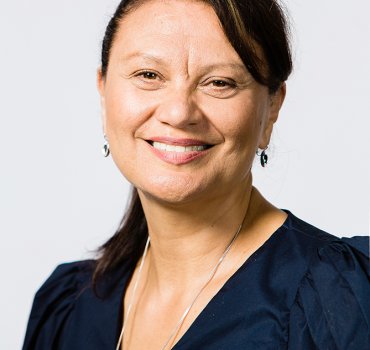
Linda Te Who / Erica Sinclair Photography

Linda Te Aho / Erica Sinclair Photography
The News asked Waikato-Tainui for its views on the legislation introduced last week. Linda Te Aho, Chair Te Arataura, provided this response.
Waikato-Tainui celebrate the removal of legislative provisions that have allowed a percentage of the general public to deny Māori from having guaranteed representation in local government.
We acknowledge the swift action of Minister Nanaia Mahuta who has listened to the champions of this cause, despite trenchant opposition. We are pleased that the amended legislation will be in effect for the next round of local body elections, and we encourage councils to be bold in the face of inevitable challenge.
Waikato-Tainui has advocated for representation at local government levels for many years. This work has been instrumental in establishing Māngai Māori appointments at Hamilton City Council and Waikato District Council. Similar positions are in place at Waipā District Council. Māngai in these positions have voting rights on key committees, and the model works well because Māngai bring exceptional skills and experience. Their contribution also adds necessary diversity rendering local government more representative of the peoples in their communities and provides for more robust and sustainable decision-making. We urge Councils to retain these positions even if they vote to establish Māori wards.
We look forward to discussing our views with councils in our rohe at a joint meeting later this month.
Local government decisions affect our everyday lives. The inclusion of Māori in all levels of decision-making goes some way for Councils to act honourably and in accordance with the provisions of Te Tiriti o Waitangi. Inclusion also aligns with international Indigenous rights instruments adopted by the New Zealand government. Māori have rights to a decisive voice in decisions that affect us directly.
Moreover, it makes sense for us to work together with local communities in the governance and management of the landscapes and ecosystems we live in and near. For these reasons, it is critical that Māori are at the forefront of co-designing the proposed new legislative regime for resource management that is being progressed at haste.
We commend this legislative change as a step in the right direction. Having said that, we would like to see further improvement.
Following a legacy of having been denied the right to vote, Māori have guaranteed seats for Māori in Parliament to ensure participation. We are of the view that there should also be guaranteed seats on every council. We have a successful model operating at Waikato Regional Council where two Māori wards have been in place for some years and we recommend this model as a way forward for councils when they come to consider the establishment of wards.
This is an opportunity for local government to give effect to the promise of partnership. Kia manawanui tātou.








